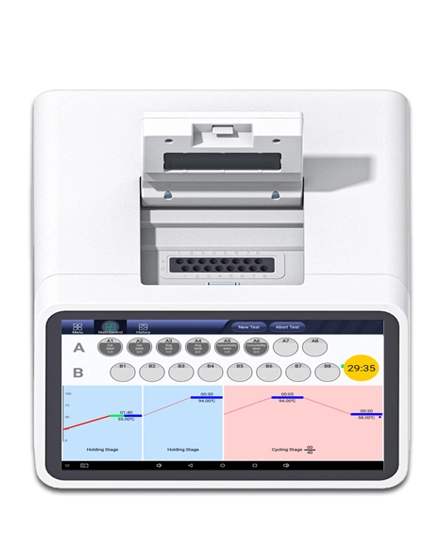In the ever-evolving landscape of biotechnology, the role of PCR (Polymerase Chain Reaction) instruments has been nothing short of revolutionary. Specifically, in the realm of genetic engineering, these instruments have become indispensable tools, propelling the field toward new frontiers of discovery and innovation. In this blog post, we'll explore the significant impact of PCR instruments on genetic engineering breakthroughs.
Unveiling the Power of PCR in Genetic Engineering
PCR as the Genetic Copy Machine
At the heart of genetic engineering lies the need to manipulate and modify DNA. PCR instruments act as genetic copy machines, allowing scientists to amplify specific DNA sequences. This precision amplification is the cornerstone of various genetic engineering techniques.
Enabling Gene Cloning
PCR instruments play a pivotal role in gene cloning—a fundamental process in genetic engineering. By amplifying a specific gene of interest, scientists can create an abundance of identical copies for further manipulation and study.
Precision Tools for Genetic Modification
Site-Directed Mutagenesis
PCR instrument facilitates site-directed mutagenesis, a technique that enables scientists to introduce specific changes or mutations in a gene's DNA sequence. This precision is crucial for studying gene function and developing genetically modified organisms (GMOs) with desired traits.
Creating Recombinant DNA
Recombinant DNA technology involves combining DNA from different sources to create a new genetic sequence. PCR instruments are instrumental in this process, allowing researchers to amplify and manipulate DNA fragments for subsequent ligation and transformation.

Applications in Gene Expression Studies
Quantitative PCR (qPCR) in Gene Expression Analysis
Quantitative PCR, a variation of traditional PCR, allows scientists to measure the expression levels of specific genes. This application is vital in understanding how genes are regulated and responding to various factors, paving the way for targeted genetic modifications.
Profiling Genetic Changes with RT-PCR
Reverse Transcription PCR (RT-PCR) is a technique used to study changes in gene expression over time. By converting RNA into complementary DNA (cDNA) and amplifying specific sequences, researchers can profile genetic changes associated with different conditions or stimuli.
Future Frontiers and Possibilities
CRISPR-Cas9 and PCR Synergy
The revolutionary CRISPR-Cas9 gene-editing technology often relies on PCR for the preparation of DNA templates. PCR instruments contribute to the precision and efficiency of CRISPR applications, opening up new possibilities for targeted and accurate genetic modifications.
Advancements in High-Throughput PCR
As genetic engineering projects become more ambitious, the need for high-throughput methods grows. Advanced PCR instruments are designed to handle high-throughput applications, enabling researchers to process a large number of samples simultaneously and accelerating the pace of genetic engineering research.
In the intricate world of genetic engineering, PCR instruments stand as true game-changers. Their ability to amplify, manipulate, and analyze DNA has fueled breakthroughs in gene cloning, genetic modification, and gene expression studies. As we navigate the future of biotechnology, the synergy between PCR instruments and genetic engineering techniques continues to shape the genetic landscape, offering new possibilities for advancements in medicine, agriculture, and beyond. The story of biotech breakthroughs is, in many ways, a testament to the crucial role played by PCR instruments in unlocking the mysteries of our genetic code.
Related Animal Lab Test Products
-
-
- Dry Chemistry Analyzer
- Compact Fully Automated Immunofluorescence Analyzer
- Economical Immunofluorescence Analyzer
- Handheld Immunofluorescence Quantitative Analyzer
- High-Speed Fully Automated Immunofluorescence Analyzer
- Semi-Automated Immunofluorescence Analyzer
- Immunofluorescence Analyzer + Incubator
- Handheld Immunofluorescence Quantitative Analyzer


![[4222]Equine Influenza Ag (EI Ag) [4222]Equine Influenza Ag (EI Ag)](/uploads/image/20250113/11/Equine-Influenza-Ag-EI-Ag-Rapid-Test-Kit.webp)
![[4547]Malaria PF [4547]Malaria PF](/uploads/image/20231206/15/morphine_1701846477.webp)
![[2030]Canine progesterone (cProg) [2030]Canine progesterone (cProg)](/uploads/image/20250112/12/Canine-progesterone-cProg-Test-Kit.webp)